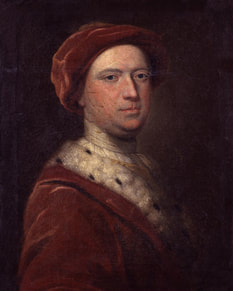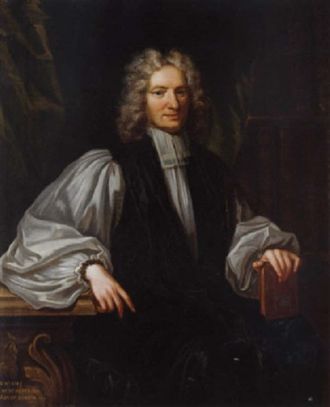
Authority Cited: Orrery, Earl of; Boyle
Author name and dates: John Boyle, 5th earl Orrery (1707-1762) (see also Pliny Letters quote on West, Gilbert page)
BKG Bio-tweet: Author; “friend” of Swift, Pope; patron of Arts; SJ: conversation and writings neat, elegant, but without strength
Categories (list of works cited – preliminary) [BKG Note: Two cites were identified as added to the 1773 Dict. indicated in bold italics; one (rise) cites Orrery and the other (roseate) cites Boyle. Both may be from memory. The edition of the Swift title below that SJ read is unknown. There were a number of London and Dublin editions.]
Remarks on the life and writings of Dr. Jonathan Swift, Dean of St. Patrick's, Dublin; in a series of letters from John Earl of Orrery to his son, the Honourable Hamilton Boyle., p.23, 1752, London : printed for A. Millar, opposite to Catharine-Street in the Strand]; rise (added in 1773 Dict.) [BKG Note: SJ indulges a pun in the quotation for rise. The story is of Archbishop William King (1650-1729, image below). "He was looked upon as too far advanced in years to be removed [to a higher office]. The reason alledged was as mortifying as the refusal itself: but the Archbishop had no opportunity of shewing his resentment, except to the new Primate Dr. Bo[u]lter, whom he received at his own house, and in his dining parlour, without rising from his chair, and to whom he made an apology, by saying, in his usual strain of wit, and with his usual sneering countenance, "My Lord, I am certain your Grace will forgive me, because, you know, I am too old to rise."" The citation in the 1773 Dict. reads: The archbishop received him sitting, for, said he, I am too old to rise.]
The Gentleman's Magazine, London: E. Cave, January 1744, p. 45
Author name and dates: John Boyle, 5th earl Orrery (1707-1762) (see also Pliny Letters quote on West, Gilbert page)
BKG Bio-tweet: Author; “friend” of Swift, Pope; patron of Arts; SJ: conversation and writings neat, elegant, but without strength
Categories (list of works cited – preliminary) [BKG Note: Two cites were identified as added to the 1773 Dict. indicated in bold italics; one (rise) cites Orrery and the other (roseate) cites Boyle. Both may be from memory. The edition of the Swift title below that SJ read is unknown. There were a number of London and Dublin editions.]
Remarks on the life and writings of Dr. Jonathan Swift, Dean of St. Patrick's, Dublin; in a series of letters from John Earl of Orrery to his son, the Honourable Hamilton Boyle., p.23, 1752, London : printed for A. Millar, opposite to Catharine-Street in the Strand]; rise (added in 1773 Dict.) [BKG Note: SJ indulges a pun in the quotation for rise. The story is of Archbishop William King (1650-1729, image below). "He was looked upon as too far advanced in years to be removed [to a higher office]. The reason alledged was as mortifying as the refusal itself: but the Archbishop had no opportunity of shewing his resentment, except to the new Primate Dr. Bo[u]lter, whom he received at his own house, and in his dining parlour, without rising from his chair, and to whom he made an apology, by saying, in his usual strain of wit, and with his usual sneering countenance, "My Lord, I am certain your Grace will forgive me, because, you know, I am too old to rise."" The citation in the 1773 Dict. reads: The archbishop received him sitting, for, said he, I am too old to rise.]
The Gentleman's Magazine, London: E. Cave, January 1744, p. 45
- Stanzas: Written in St. Pancras-churchyard, May 17, 1743; roseate (also appears in A Collection of Poems from the best authors . . . by James Elphinston, 1764, London: Printed by James Bettenham . . .) [BKG 2023 Note: Thanks to Prof. Beth Young for researching these sources. Both John Boyle (Orrery) and later Elphinston were known to SJ, who was editing the Gentleman's Magazine when the poem was printed. Neither publication identified the author, but the 1773 Dict. entry for roseate cites "Boyle." The 5th earl Orrery therefore seems the logical candidate for attribution. Inexact quote, likely from memory.]
Archbishop William King (1650-1729)
